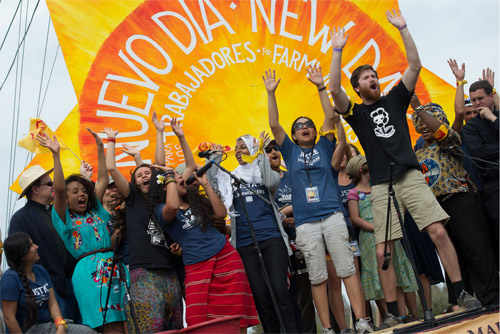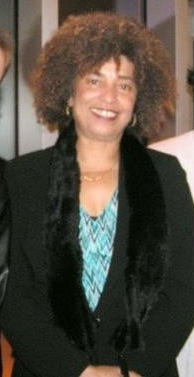HONOR THE THREE L’S-LENIN, LUXEMBURG, LIEBKNECHT-Honor The Historic Leader Of The Bolshevik Revolution-Vladimir Lenin
Every January leftists honor three revolutionaries who died in that month, V.I. Lenin of Russia in 1924, Karl Liebknecht of Germany and Rosa Luxemburg of Poland in 1919 murdered after leading the defeated Spartacist uprising in Berlin. I will make my political points about the heroic Karl Liebknecht and his parliamentary fight against the German war budget in World War I in this space tomorrow (see also review in American Left History April 2006 archives). I have made some special points here yesterday about the life of Rosa Luxemburg (see review in American Left History January 2006 archives). In this 100th anniversary period of World War I it is appropriate, at a time when the young needs to find a few good heroes, to highlight the early struggles of Vladimir Lenin, the third L, to define himself politically. Probably the best way to do that is to look at Lenin’s experiences through the prism of his fellow revolutionary, early political opponent and eventual co-leader of the Bolshevik Revolution Leon Trotsky.
A Look At The Young Lenin By A Fellow Revolutionary
The Young Lenin, Leon Trotsky, Doubleday and Co., New York, 1972
The now slightly receding figure of the 20th century Russian revolutionary Vladimir Lenin founder and leader of the Bolshevik Party and guiding light of the October 1917 Russian Revolution and the first attempt at creating a socialist society has been the subject to many biographies. Some of those efforts undertaken during the time of the former Soviet government dismantled in 1991-92, especially under the Stalin regime, bordered on or were merely the hagiographic. Others, reflecting the ups and downs of the post- World War II Cold War, painted an obscene diabolical picture, excluding Lenin’s horns, and in some cases not even attempting to exclude those. In virtually all cases these efforts centered on Lenin’s life from the period of the rise of the Bolshevik Social Democratic faction in 1903 until his early death in 1924. In short, the early formative period of his life in the backwaters of provincial Russia rate a gloss over. Lenin’s fellow revolutionary Leon Trotsky, although some ten years younger than him, tries to trace that early stage of his life in order to draw certain lessons. It is in that context that Trotsky’s work contains some important insights about the development of revolutionary figures and their beginnings.
Although Trotsky’s little work, originally intended to be part of a full biography of Lenin, never served its purpose of educating the youth during his lifetime and the story of it discovery is rather interesting one should note that this is neither a scholarly work in the traditional sense nor is it completely free from certain fawning over Lenin by Trotsky. Part of this was determined by the vicissitudes of the furious Trotsky-Stalin fights in the 1920s and 1930s for the soul of the Russian Revolution as Trotsky tried to uncover the layers of misinformation about Lenin’s early life. Part of it resulted from Trotsky’s status of junior partner to Lenin and also to his late coming over to Bolshevism. And part of it is, frankly, to indirectly contrast Lenin’s and his own road to Marxism.
That said, this partial biography stands up very well as an analysis of the times that the young Lenin lived in, the events that affected his development and the idiosyncrasies of his own personality that drove him toward revolutionary conclusions. In short, Trotsky’s work is a case study in the proposition that revolutionaries are made not born.
That said, this partial biography stands up very well as an analysis of the times that the young Lenin lived in, the events that affected his development and the idiosyncrasies of his own personality that drove him toward revolutionary conclusions. In short, Trotsky’s work is a case study in the proposition that revolutionaries are made not born.
To a greater extent than would be true today in a celebrity-conscious world many parts of Lenin’s early life are just not verifiable. Partially that is due to the nature of record keeping in the Russia of the 19th century. Partially it is because of the necessity to rely on not always reliable police records. Another part is that the average youth, and here Lenin was in some ways no exception, really have a limited noteworthy record to present for public inspection. That despite the best efforts of Soviet hagiography to make it otherwise. Nevertheless Trotsky does an admirable job of detailing the high and low lights of agrarian Russian society and the vagaries of the land question in the second half of the 19thcentury. One should note that Trotsky grew up on a Ukrainian farm and therefore is no stranger to many of the same kind of problems that Lenin had to work through concerning the solution to the agrarian crisis, the peasant question. Most notably, is that the fight for the Russian revolution that everyone knew was coming could only be worked out through the fight for influence over the small industrial working class and socialism.
I would note that for the modern young reader that two things Trotsky analyzes are relevant. The first is the relationship between Lenin and his older brother Alexander who, when he became politicized, joined a remnant of the populist People’s Will terrorist organization and attempted to assassinate the Tsar. For his efforts he and his co-conspirators were hanged. I have always been intrigued by the effect that this event had on Lenin’s development. On the one hand, as a budding young intellectual, would Lenin have attempted to avenge his brother’s fate with his same revolutionary intellectual political program? Or would Lenin go another way to intersect the coming revolutionary either through its agrarian component or the budding Marxist Social Democratic element? We know the answer but Trotsky provides a nicely reasoned analysis of the various influences that were at work in the young Lenin. That alone is worth the price of admission here.
The other point I have already alluded to above. Revolutionaries are made not born, although particular life circumstances may create certain more favorable conditions. Soviet historians in their voluntarist hay day tried to make of Lenin a superhuman phenomenon- a fully formed Marxist intellectual from his early youth. Trotsky once again distills the essence of Lenin’s struggle to make sense of the world, the Russian world in the first instance, as he tries to find a way out the Russian political impasse. Trotsky’s work only goes up to 1892-93, the Samara period, the period before Lenin took off for Petersburg and greener pastures. He left Samara a fully committed Marxist but it would be many years, with many polemics and by using many political techniques before he himself became a Bolshevik, as we know it. And that, young friends, is a cautionary tale that can be taken into the 21st century. Read on.






 Wednesday, January 21, 6:00
pm
Wednesday, January 21, 6:00
pm


